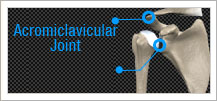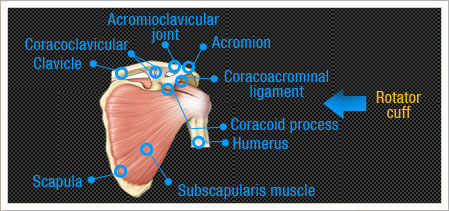 MIOT Hospitals is pioneer in shoulder replacement surgeries.
MIOT Hospitals is pioneer in shoulder replacement surgeries.
Why Shoulder Replacement Surgery
- Home
- Why Shoulder Replacement Surgery
-
Shoulder Replacement
Details -
Shoulder Conditions
Details Arthritis is not a symptom of “just getting old”
Arthritis is not a symptom of “just getting old” -
Why Shoulder Replacement Surgery
Details MIOT dreams of a world where you are pain free.
MIOT dreams of a world where you are pain free. -
Shoulder Surgery Procedures
Details Explore a range of shoulder replacement procedures.
Explore a range of shoulder replacement procedures. -
Recent advances in Shoulder Arthroplasty
Details Explore Recent advances in Shoulder Arthroplasty
Explore Recent advances in Shoulder Arthroplasty -
Preparation for Surgery
Details Replacing joints has really come of age with this introduction of computer navigation.
Replacing joints has really come of age with this introduction of computer navigation. -
Hospital Stay
Details While you’re at MIOT, we prepare you before the surgery, operate and treat you further
While you’re at MIOT, we prepare you before the surgery, operate and treat you further -
Recovering at Home
Details Your shoulder replacement should give you years of service protect it by taking a few simple steps
Your shoulder replacement should give you years of service protect it by taking a few simple steps -
How much would it cost?
Details Shoulder replacement surgery cost varies with the type of implant and the shoulder condition.
Shoulder replacement surgery cost varies with the type of implant and the shoulder condition. -
Videos
Details Explore shoulder replacement surgery videos.
Explore shoulder replacement surgery videos. -
FAQ
Details Got questions? Read on to have your queries answered.
Got questions? Read on to have your queries answered. -
Enquire online
Details Leave us an enquiry for our expert’s opinion.
Leave us an enquiry for our expert’s opinion.
The shoulder joint is the most mobile joint in our body. It rotates to 180 degrees in three directions.This freedom of movement is absolutely necessary for all day-to-day functions in our life. When your shoulder is healthy, you may take it for granted, not giving a thought about the job it does for you. But once it starts to become painful and stiff, and you are forced to restrict certain activities, you may come to realize how much freedom of movement means to you.
Fortunately, today’s advanced medical technology makes it possible to replace the shoulder joint with an artificial one that reduces pain, allows you movement and improves your quality of life.
Shoulder replacement is the third commonly performed joint replacement surgery, next to hip and knee.
How your Shoulder Joint functions?
 Shoulder is a complex joint. The main articulation is called Glenohumeral joint. This is the ball and socket type of joint where the head of upper arm bone (humerus), meets the shoulder blade bone (scapula). The socket portion is called the glenoid, hence the name Gleno-Humeral joint. This is responsible for majority of movements of shoulder girdle.
Shoulder is a complex joint. The main articulation is called Glenohumeral joint. This is the ball and socket type of joint where the head of upper arm bone (humerus), meets the shoulder blade bone (scapula). The socket portion is called the glenoid, hence the name Gleno-Humeral joint. This is responsible for majority of movements of shoulder girdle.
How arthritis is caused?

The shoulder joint is an extremely mobile ball and socket joint. This is in contrast with the lower limb joints like hip and knee, which are mainly, weight-bearing joint. Shoulder joint moves to 180 degrees in three planes, namely forward, sideways and rotation. The humeral head is five times the surface of the socket. It is like a golf ball on the tee. So, through out the range of movement, the ball needs to be stabilized against the socket.
This is done by labrum and ligaments, which acts like a bumper all round the socket, deepening it, providing a suction effect on the ball. The second important factor is the rotator cuff, whichis a group of four muscles in the shoulder that provides both stability and rotating movements of the shoulder joint. Together, they stabilize the ball against the socket, there by allowing the big shoulder girdle muscles to move effortlessly. Structurally, the joint needs good bone on the ball and socket with good cartilage cover.
When any of these things go wrong, shoulder arthritis develops.
Indications for Shoulder Replacement
Shoulder replacement surgery is considered for patients whose shoulder joints have been damaged by progressive arthritis, trauma, or other rare destructive diseases of the joint.
Common indications are:
- Primary Osteoarthritis of shoulder
- Avascular necrosis of humeral head
- Rheumatoid Arthritis of shoulder
- Post Traumatic Arthritis
- Severe acute fractures
- Cuff Tear Arthritis
- Irreparable massive Rotator cuff tear
- Bone tumors
- Failed Trauma surgery
- Failed shoulder replacement surgery
Treatment of Shoulder Arthritis
In the initial stages, the pain can be helped with anti inflammatory tablets and physiotherapy. Steroid injection is not routinely recommended. In selected cases, Arthroscopic debridement can help to relieve symptoms in the early stages only.
When the arthritis is advanced, the only successful treatment is by shoulder replacement.
Benefits of Shoulder joint replacement
Once the new joint has completely healed, the patient will reap the benefits of the surgery. These include:
- No pain
- Painless range of movement
- Improved quality of life and ability to return to normal activities and pastimes.
Most likely, lifting weights and high – impact activities will be discouraged.
Risks of shoulder joint replacement surgery
As with any major surgery, there are potential risks involved. Your surgeon will explain the potential risk and complications of shoulder replacement. Possible complications include risk of infection, nerve injury and issues related to longevity of prosthesis. When complications occur, most are successfully treatable. A few may require revision surgery in future.
